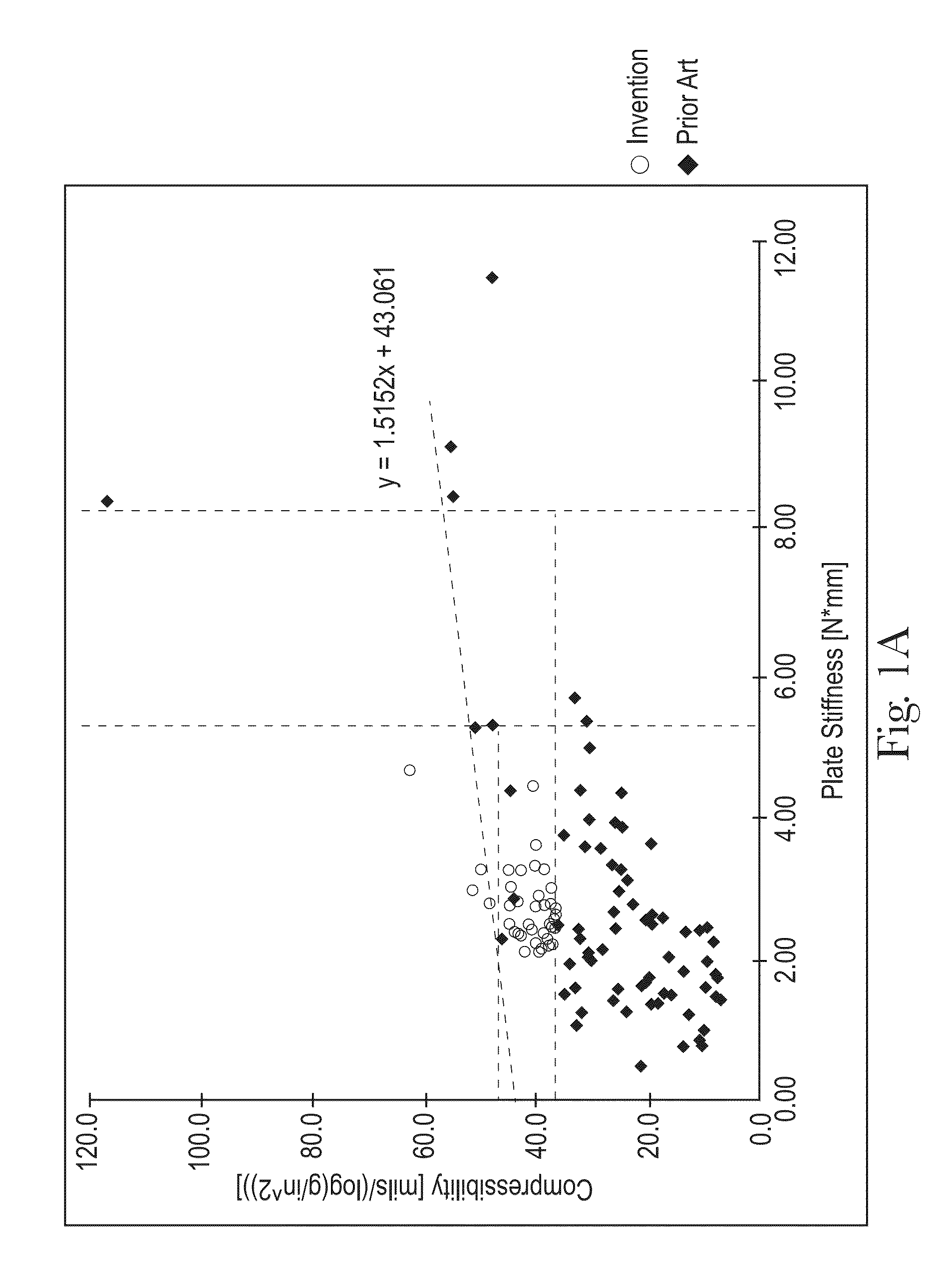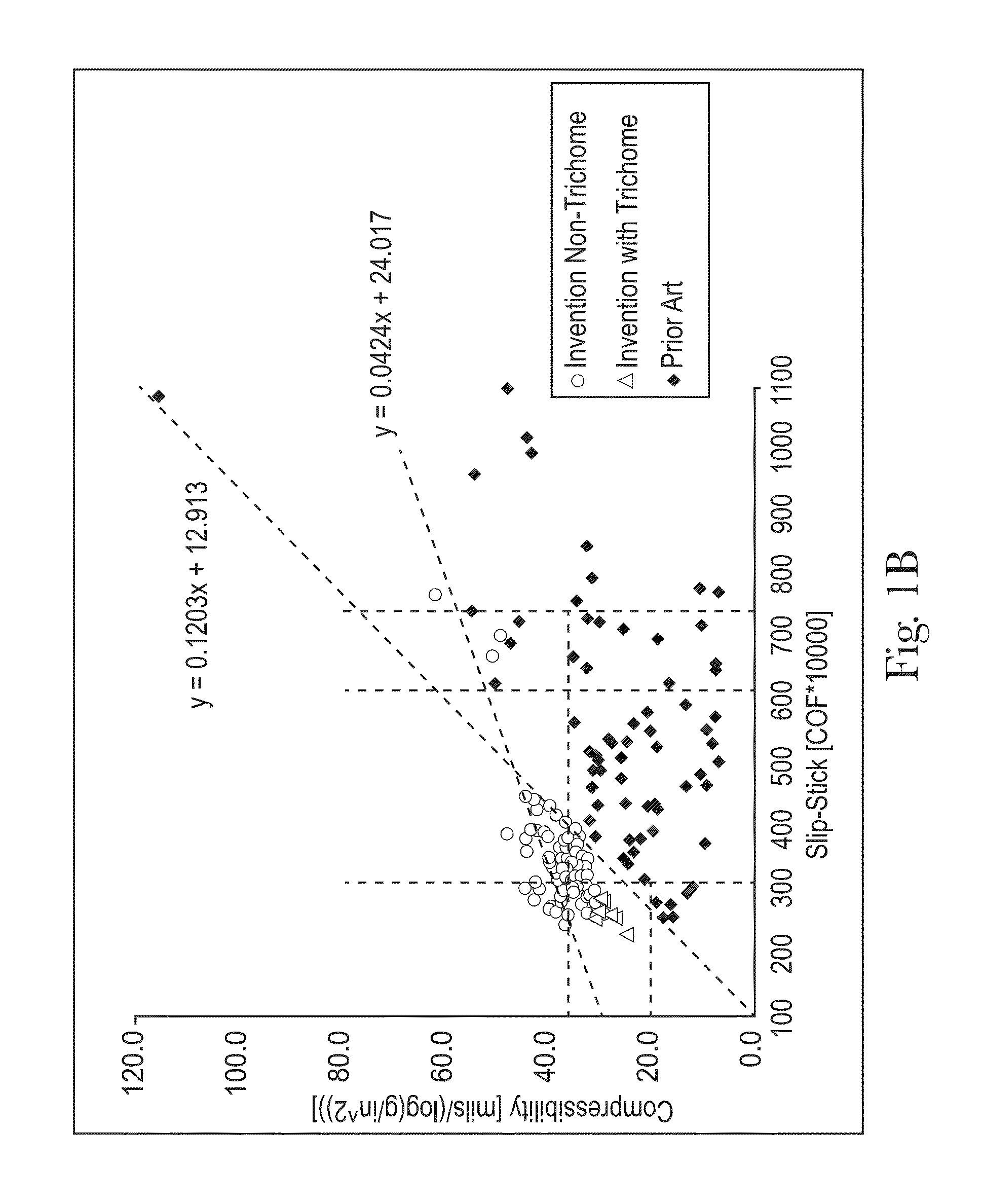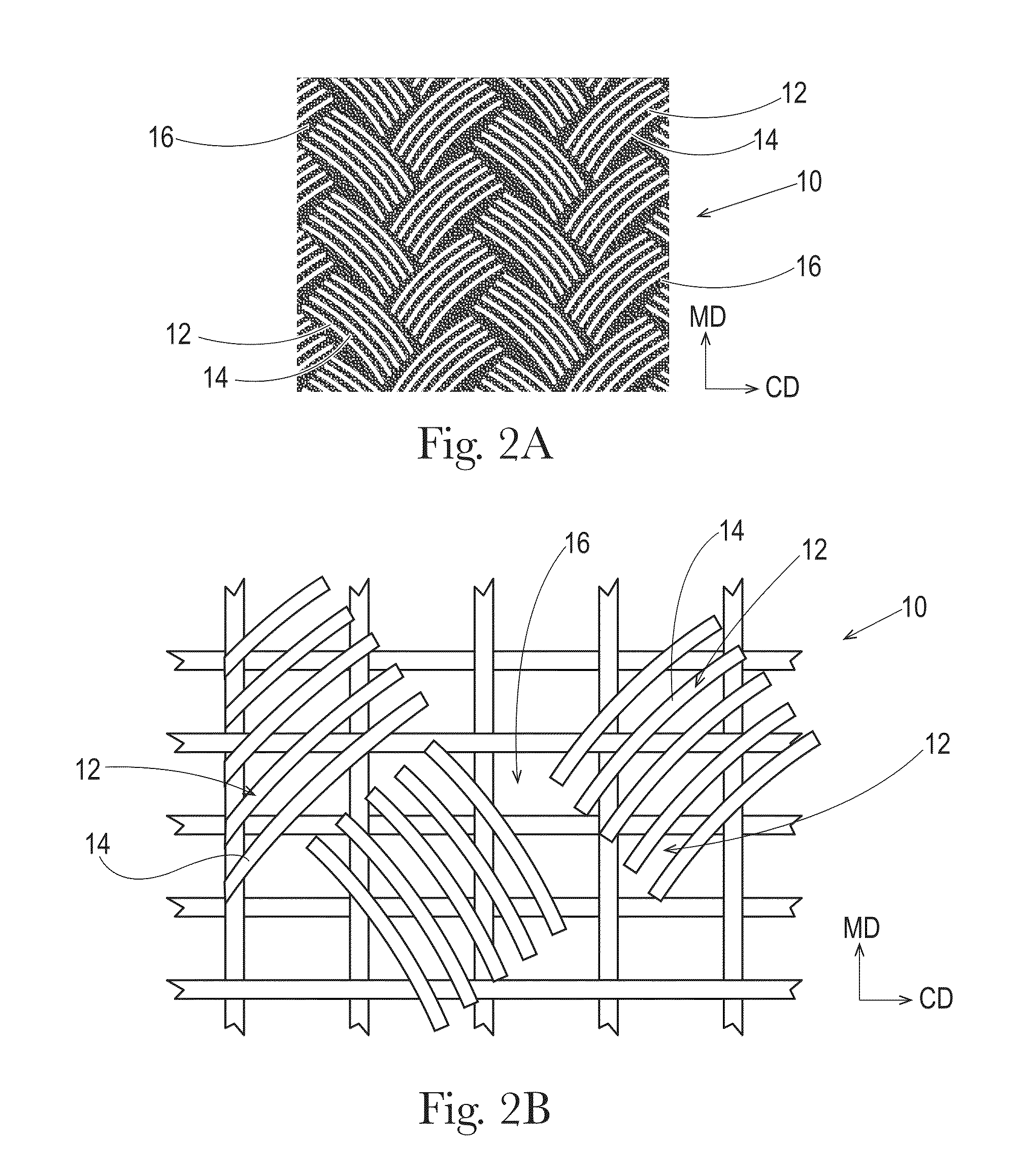Sanitary tissue products
a technology of sanitary tissue and products, applied in the field of sanitary tissue products, can solve the problems of surface smoothness cushiness dichotomy, current sanitary tissue products fall short of consumers' expectations for surface smoothness and cushiness, etc., and achieve the effects of improving the slip stick coefficient of friction, improving compressibility, and being more comfortable to us
- Summary
- Abstract
- Description
- Claims
- Application Information
AI Technical Summary
Benefits of technology
Problems solved by technology
Method used
Image
Examples
example 1
Through-Air-Drying Belt
[0173]The following Example illustrates a non-limiting example for a preparation of a sanitary tissue product comprising a fibrous structure according to the present invention on a pilot-scale Fourdrinier fibrous structure making (papermaking) machine.
[0174]An aqueous slurry of eucalyptus (Fibria Brazilian bleached hardwood kraft pulp) pulp fibers is prepared at about 3% fiber by weight using a conventional repulper, then transferred to the hardwood fiber stock chest. The eucalyptus fiber slurry of the hardwood stock chest is pumped through a stock pipe to a hardwood fan pump where the slurry consistency is reduced from about 3% by fiber weight to about 0.15% by fiber weight. The 0.15% eucalyptus slurry is then pumped and equally distributed in the top and bottom chambers of a multi-layered, three-chambered headbox of a Fourdrinier wet-laid papermaking machine.
[0175]Additionally, an aqueous slurry of NSK (Northern Softwood Kraft) pulp fibers is prepared at abo...
example 2
Through-Air-Drying Belt
[0183]The following Example illustrates a non-limiting example for a preparation of a sanitary tissue product comprising a fibrous structure according to the present invention on a pilot-scale Fourdrinier fibrous structure making (papermaking) machine.
[0184]An aqueous slurry of eucalyptus (Fibria Brazilian bleached hardwood kraft pulp) pulp fibers is prepared at about 3% fiber by weight using a conventional repulper, then transferred to the hardwood fiber stock chest. The eucalyptus fiber slurry of the hardwood stock chest is pumped through a stock pipe to a hardwood fan pump where the slurry consistency is reduced from about 3% by fiber weight to about 0.15% by fiber weight. The 0.15% eucalyptus slurry is then pumped and equally distributed in the top and bottom chambers of a multi-layered, three-chambered headbox of a Fourdrinier wet-laid papermaking machine.
[0185]Additionally, an aqueous slurry of NSK (Northern Softwood Kraft) pulp fibers is prepared at abo...
example 3
Through-Air-Drying Belt
[0193]The following Example illustrates a non-limiting example for a preparation of a sanitary tissue product comprising a fibrous structure according to the present invention on a pilot-scale Fourdrinier fibrous structure making (papermaking) machine.
[0194]An aqueous slurry of eucalyptus (Fibria Brazilian bleached hardwood kraft pulp) pulp fibers is prepared at about 3% fiber by weight using a conventional repulper, then transferred to the hardwood fiber stock chest. The eucalyptus fiber slurry of the hardwood stock chest is pumped through a stock pipe to a hardwood fan pump where the slurry consistency is reduced from about 3% by fiber weight to about 0.15% by fiber weight. The 0.15% eucalyptus slurry is then pumped and equally distributed in the top and bottom chambers of a multi-layered, three-chambered headbox of a Fourdrinier wet-laid papermaking machine.
[0195]Additionally, an aqueous slurry of NSK (Northern Softwood Kraft) pulp fibers is prepared at abo...
PUM
| Property | Measurement | Unit |
|---|---|---|
| density | aaaaa | aaaaa |
| density | aaaaa | aaaaa |
| density | aaaaa | aaaaa |
Abstract
Description
Claims
Application Information
 Login to View More
Login to View More - R&D
- Intellectual Property
- Life Sciences
- Materials
- Tech Scout
- Unparalleled Data Quality
- Higher Quality Content
- 60% Fewer Hallucinations
Browse by: Latest US Patents, China's latest patents, Technical Efficacy Thesaurus, Application Domain, Technology Topic, Popular Technical Reports.
© 2025 PatSnap. All rights reserved.Legal|Privacy policy|Modern Slavery Act Transparency Statement|Sitemap|About US| Contact US: help@patsnap.com



